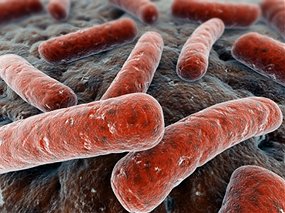Gut bugs trigger severe malnutrition in kids
 Washington, Jan 31 : Bugs populating the intestine trigger a form of severe, acute childhood malnutrition, says a new study based on young twins in sub-Saharan Africa.
Washington, Jan 31 : Bugs populating the intestine trigger a form of severe, acute childhood malnutrition, says a new study based on young twins in sub-Saharan Africa.
The research, led by Washington University School of Medicine-St. Louis, shows how such gut bugs' communities conspire with a poor diet to trigger malnutrition.
The new study followed 317 sets of twins in Malawi in Africa for the first three years of their lives.
During this time, half of the twin pairs remained healthy, and in the others, either one or both twins developed malnutrition, the journal Science reports.
Researchers focused on children who developed a form of malnutrition called kwashiorkor. The illness is associated with swollen bellies, liver damage, skin ulcerations and loss of appetite, besides wasting, according to a Washington statement.
The discovery is bolstered by additional studies in mice, showing that gut microbes transplanted from malnourished children cause dramatic weight loss and alter metabolism when the animals are fed a nutrient-poor diet.
"Feeding the children and the mice a high-calorie, nutrient-rich food had a temporary, beneficial effect on their gut microbes, but not enough to repair the dysfunction," said senior study co-author Jeffrey Gordon, director of the Washington Centre for Genome Sciences and Systems Biology.
Scientists have long been puzzled over why some children are afflicted by the condition but not others, even those in the same household who eat the same foods.
This has led to the realization that a lack of food alone cannot explain its causes.
The standard treatment is a peanut-based, nutrient-rich therapeutic food, which has helped to reduce deaths from the condition.
But the new study shows that the therapeutic food only has a transient effect on the gut microbes.
Once the therapeutic food is discontinued, the community of microbes in the intestine and their genes revert to an immature state, in the children and in the mice.(IANS)